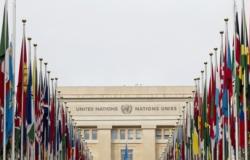A Fool’s Errand? The Next Secretary-General and United Nations Reform

With the recent election of António Guterres as the next United Nations Secretary-General, the focus will soon shift to the next Secretary-General’s reform priorities, with a particular emphasis on how he should spend his first year in office. The view in many policy circles is that the UN urgently needs comprehensive change, and the next Secretary-General is expected to capitalize on the honeymoon to initiate transformation. In this article, Dr. Richard Ponzio (Stimson Center) and Dr. Michael Schroeder (American University) directly challenge this conventional view and put forward an alternative leadership strategy.
How can the incoming Secretary-General António Guterres promote and lead change? A better strategy than immediately seeking to initiate transformational change is to implement modest changes that accumulate over multiple rounds and to influence and empower the leadership of so-called ‘smart coalitions’ of state and non-state actors seeking to enact ambitious changes to intergovernmental structures and global norms. Specifically, we propose a change leadership strategy for the next Secretary-General based on five guiding principles and including illustrative reforms that suggest how he might put each principle into practice.
To read the article, please click the image above or the PDF at the bottom of this piece.
Policy Implications
The incoming Secretary-General should:
- Give the organization direction by defining an operational mission.
- Resist the urge to play thought leader and focus instead on gathering and analyzing the carefully researched and thoughtful ideas of others.
- Avoid the temptation to pursue a comprehensive grand bargain by, instead, introducing a reform agenda incrementally and implementing it over multiple rounds.
- Embrace informal change by seizing windows of opportunity to establish new practices.
- Let others lead by piggybacking on existing ‘smart coalitions,’ or where these coalitions do not exist, exercising the Secretary-General’s network, convening, and agenda setting power to facilitate their formation.
To read the full Essay as a PDF, please click here.
Photo credit: United Nations Photo via Foter.com / CC BY-NC-ND


